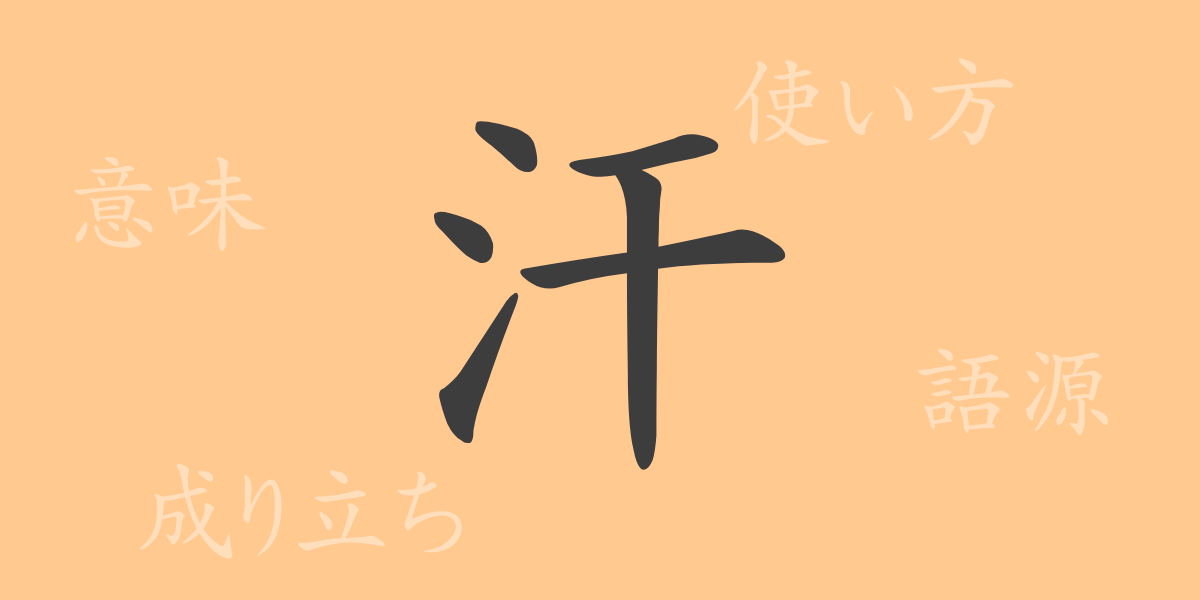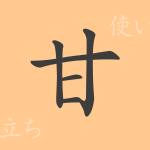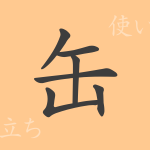Sweat, intimately connected to our lives, beads up on our skin during the summer heat, physical activity, or moments of tension. It has a close relationship with our health. But what secrets lie within a single drop of this seemingly insignificant sweat? In this article, we delve into the charm of the Japanese kanji “汗” ( Ase), exploring its origins, meanings, usage, and the various idioms and proverbs associated with it.
The Origin of 汗 (Ase)
The kanji “汗” ( Ase) is composed of “氵” (Sanzui), meaning water, and the phonetic component “干”. “干” shares its origin with “幹”, representing the essence or core of things. Thus, “汗” ( Ase) signifies the water that comes from within the body, the moisture that is central to life’s activities. In ancient China, this character was created to represent the critical function of the body’s excretion of fluids.
Meaning and Usage of 汗 (Ase)
“汗” ( Ase) refers to the liquid secreted by the sweat glands in human skin. The word is used in various contexts in everyday life. For instance, “汗をかく” (Aase- wo- kaku) means to sweat for temperature regulation due to exercise or heat, while “汗を拭く” (ase- wo- fu-ku)means to wipe off that sweat. “冷や汗” (hi-ya-ase)describes the sweat produced from nervousness or fear, and “汗ばむ” (ase-bamu) is used to describe the state of breaking out in a light sweat.
How to Read 汗, Stroke Count, and Radical
Here’s some basic information related to the kanji “汗” ( Ase).
- Reading: The onyomi (Chinese reading) is “カン” (kan), and the kunyomi (Japanese reading) is “あせ” (ase).
- Stroke Count: It is composed of 6 strokes.
- Radical: The radical is “氵” (sanzui).
Idioms, Phrases, and Proverbs Using 汗 (Ase) and Their Meanings
There are numerous words and expressions in Japanese that include “汗” ( Ase). Let’s look at some examples.
- “汗顔” (kangan): A word expressing a state of embarrassment or feeling sorry.
- “汗牛充棟” (kangyūjūtō): Owning an enormous number of books, so much so that even a cow would sweat carrying them.
- “手に汗握る” (te- ni -ase- nigi-ru): An expression depicting a state of nervousness or excitement.
- “我が身を汗にまみれて働く” (wa-ga- mi -wo -ase -ni -mamirete hatara-ku): Working very hard, covered in sweat.
Conclusion on 汗 (Ase)
The kanji “汗” ( Ase) represents a natural phenomenon deeply ingrained in our lives, and its presence has been used in many expressions throughout history. More than just a bodily fluid, sweat can be seen as a mirror reflecting human emotions and conditions. Through this article, we hope to have shed light on the meanings and cultural background of “汗” ( Ase), and perhaps altered your perspective on sweat in our daily lives.

























